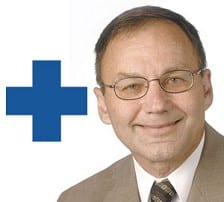2012 in Preview: Health & Wellness

Health systems prepare to retool payment systems
“Accountable care” is a term that Dr. David Swieskowski and his staff will be focusing on in 2012. It’s even part of his new job title; on Jan. 1, he became senior vice president and chief accountable care officer for Mercy Medical Center – Des Moines.

“What it’s all going to boil down to is better care, better health and lower cost, what we call the triple aim,” Swieskowski said. Formerly the CEO of Mercy Clinics Inc., Swieskowski will lead Mercy’s efforts to establish an accountable care organization (ACO).
The basics of ACOs were defined in the Patient Protection and Affordable Care Act of 2010 for Medicare patients, and private-sector versions of ACOs are now taking shape as well. Health-care organizations will be eligible to share in the cost savings they generate by providing more cost-effective care, provided they also meet quality standards.
Both Mercy and its chief competitor, Iowa Health System, plan to establish ACOs in 2012. Iowa Health will be among 16 health-care organizations in the nation to test the Medicare model, which is known as the Pioneer ACO, at its Fort Dodge hospital and physician group.
“We are already anticipating we will expand that model to other regions, and there is the opportunity to do that under the health reform law,” said Bill Leaver, Iowa Health System’s president and CEO. “We don’t intend that Fort Dodge will be the only place that will have an ACO.”
Regardless how the U.S. Supreme Court rules this spring on the constitutionality of the Affordable Care Act, health-care organizations in Iowa say they will continue to move forward on care delivery and payment reform.
The health-care overhaul will create further opportunities for Iowa Health to affiliate with smaller hospital groups, which often lack the infrastructure, such as electronic medical records systems, needed to improve care, Leaver said. In 2011, Iowa Health added a new affiliate health system in Peoria, Ill., and “we are talking to some (other potential affiliates) now,” Leaver said. “I would suspect in some point in 2012 we would announce our system has grown again. It makes sense for us to expand the population we can deliver care to. That’s what is motivating us to expand.”
Mercy’s Swieskowski said patients can expect more interaction from providers that participate in ACOs. Behind the scenes, physicians will be using electronic medical record data to focus on the highest-risk patients.
“We’re going to focus on preparing patients to better manage their disease when they’re not in the medical setting,” he said. “We’ll know what patients we need to reach out to, and work more proactively to engage them with the management of their disease. We’re also going to focus on better access, getting patients in when they want to be seen.”
Deadline is looming for formation of state health insurance exchange
Iowa legislators must decide during the 2012 session whether to move forward with legislation to create a statewide health insurance exchange.
Those states that don’t establish their own exchanges will default to federal regulations dictating how the exchange is operated, which “wouldn’t be in the best interests of Iowa,” said Jesse Patton, president of Associations Marketing Group Inc. and a past president of the Iowa Association of Health Underwriters. Patton represents a coalition of business groups that is urging legislators to act this session.

The alliance lobbied unsuccessfully for a bill during the 2011 legislative session to create a state exchange; now the clock is really ticking to get it done, said Scott Weiser, president of Capitol Strategies Group Inc., an Urbandale-based lobbying firm.
From a small-business perspective, enacting legislation for a state exchange would reduce uncertainty, said Jim Henter, president of the Iowa Retail Federation. “Having some flexibility would certainly be preferred,” he said. “Rolling the dice on what the Supreme Court decides doesn’t make sense. We want to have some control of our own destiny.”











